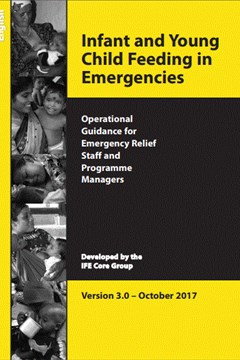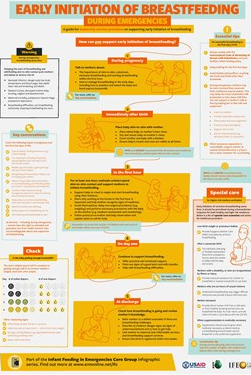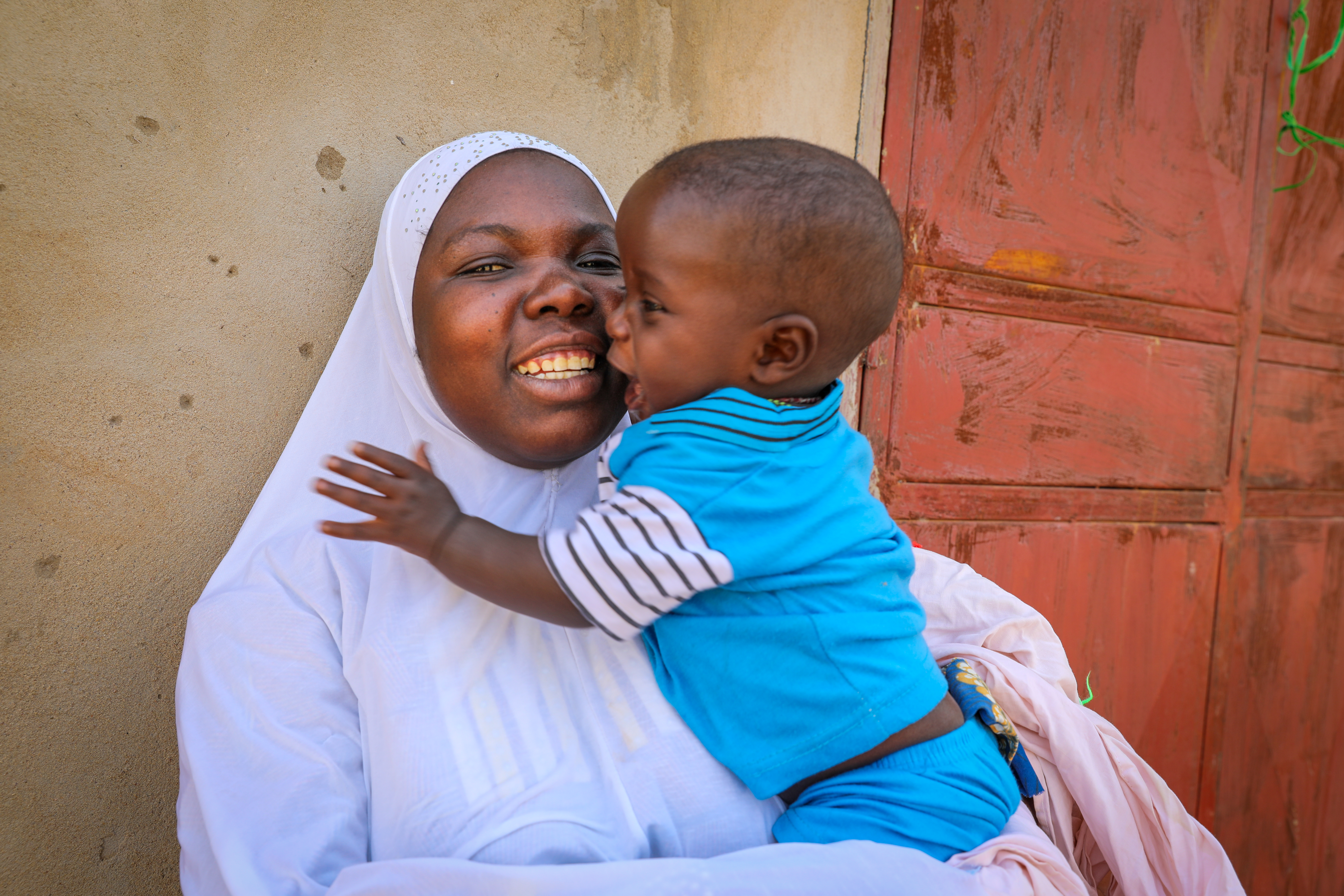The Infant Feeding in Emergencies (IFE) Core Group is a global collaboration of agencies and individuals that formed in 1999 to address policy guidance and training resource gaps hampering programming on infant and young child feeding support in humanitarian contexts. The IFE Core Group works to develop guidance and resource materials; documents lessons learned and builds capacity to ensure more effective infant and young child feeding (IYCF) support in emergency contexts (IYCF-E).
The IFE Core Group is coordinated by the Emergency Nutrition Network (ENN). Current members of the Group include ACF, ADRA, CDC, CGBI, CHEERing, Concern Worldwide, Eleanor Crook Foundation, ENN, Global Nutrition Cluster, Goal, IBFAN, IMC, IOCC, IRC, MSF, SafelyFed Canada, Samaritan’s Purse, Save the Children, UNHCR, UNICEF, USAID, USAID/OFDA, WFP, WHO, World Vision, and several independent individuals.
Latest IFE Core Group update
During the last quarter of 2022, the IFE Core Group held its annual meeting remotely, and its 2023 workplan is under development.
New resources include:
- Joint Statement on Protecting Maternal & Child Nutrition in the Ukraine Conflict and Refugee Crisis (multiple language available)
- Infographics on IYCF, Infectious Disease and Preventing and Managing Inappropriate donations. These are available in multiple languages.
- Guidance Note: Infant and young child feeding in the first three days after a nuclear power plant accident
Two webinars were organized in this quarter: 'Learning & Sharing Cafe: Preventing and managing inappropriate donations of BMS' and 'WHO/UNICEF IYCF Indicators: Challenges and opportunities in humanitarian contexts'.
For more information on any of the activities highlights or if you would like to enquire about joining the IFE Core Group, please contact IFE Core Group Facilitator



